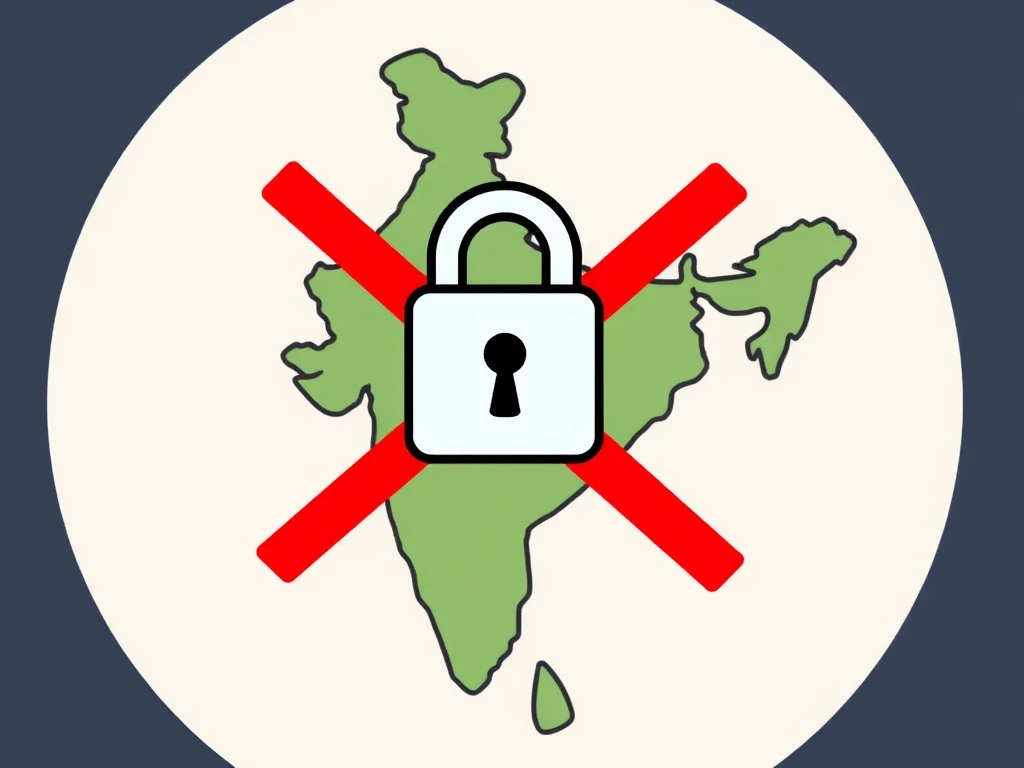Urgent: Indian High Court Orders Steps to Block Proton Mail

For many in the cryptocurrency space, privacy and resistance to censorship are core values. News from India highlights the challenges these values face when they clash with government demands. The recent order from an **Indian high court** demanding steps to **block Proton Mail** in the country is a stark reminder of the global pushback against platforms prioritizing user privacy.
Why Did the Indian High Court Target Proton Mail?
The order, issued by the High Court of Karnataka on April 29, wasn’t arbitrary. It stemmed from a specific complaint filed in January by a design firm in New Delhi. The firm alleged that its employees received offensive emails sent through the **encrypted email** service. Citing the country’s Information Technology Act of 2008, Justice M Nagaprasanna ordered the government to “block forthwith” domain names associated with the service.
The core issue appears to be Proton Mail’s refusal to share user information with Indian authorities in connection with this complaint. This isn’t the first time Proton Mail has faced pressure in **India**. In March 2024, the Proton team reported a similar proposed blocking order related to alleged “hoax bomb threats.” While that previous attempt didn’t immediately result in a block, this new court order carries significant weight.
Proton Mail India: Part of a Global Trend?
The situation with **Proton Mail India** reflects a broader global trend where governments are increasing pressure on platforms regarding user activity and data sharing. We’ve seen similar actions:
- The arrest of Telegram founder Pavel Durov, partly linked to allegations of failing to moderate illicit content.
- In Spain, Proton AG reportedly provided user information to authorities in 2024, a move that sparked debate among privacy advocates about the limits of centralized privacy services.
These instances highlight the difficult position platforms find themselves in when balancing user privacy commitments with legal demands from national authorities.
Comparing Challenges: Crypto vs. Encrypted Email in India
While this specific case involves an email service, the challenges faced by **Proton Mail India** resonate with those experienced by cryptocurrency platforms and users in the country. India’s regulatory environment for digital assets has been tightening:
- Users face a significant 30% tax on profits from crypto trading, in effect since April 2022.
- Crypto exchanges have faced increased scrutiny and, in some global instances (like South Korea blocking exchanges or the US sanctioning mixers like Tornado Cash), outright blocks or sanctions.
Despite these hurdles, India remains a massive market with an estimated over 100 million digital asset holders. Both crypto services and platforms like Proton Mail operate within a complex legal landscape where government demands for information and control are increasing.
What Does This Mean for Privacy and Regulation?
The order to **India block Proton Mail** raises important questions about the future of privacy-focused services operating across borders. While the legal battle may continue and the actual implementation of the block remains to be seen, the court’s stance signals a clear intent by the Indian government to assert authority over online communications, even those using strong encryption.
This case is a critical development for understanding the trajectory of **India privacy regulation** and its potential impact on internet services, including those that underpin the decentralized principles valued by the crypto community.
Conclusion
The **Indian high court** order targeting Proton Mail underscores the growing tension between national regulatory control and digital privacy. As governments worldwide seek greater oversight of online activities, services designed for privacy face increasing pressure. This situation in India is a key event to watch, not just for email users, but for anyone concerned about digital rights and the future of decentralized or privacy-preserving technologies.









